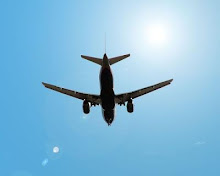I've been a juvenile diabetic for over three years now. I was about to turn fifteen when I had to spend a week in the hospital learning how to take care of my new disease. Fortunately, my health insurance covered 100% of the hospital bill, which was $40,000 ($10,000 a night). The hospital stay, although incredibly expensive, factored significantly in establishing the system I have for managing my diabetes and maintaining my overall health.
An entire team of endocrinologists, dietitians, diabetes educators, psychologists and nurses educated my parents and me on the facets of managing diabetes, such as counting carbohydrates, injecting insulin, and treating for "lows" and "highs." They also emphasized the importance of tight control of my blood sugars in order to prevent future health complications. And luckily, during routine blood work, my doctor discovered I also had another endocrine disorder, hypothyroidism, for which I was immediately placed on medication.
My health insurance covers the cost of all my daily supplies and medications - short-acting insulin, long-acting insulin, needles, lancets, pens, testing strips, blood sugar meter, Levothyroxine, etc. They also pay for my quarterly appointment with my endocrinologist at which we monitor how well I'm managing my disease and fine tune my treatment plan, if necessary.
And you know what...I take all of this for granted.
Last summer I came across a website for an organization called AYUDA, which stands for American Youth Understanding Diabetes Abroad. The mission of AYUDA is to create programs for diabetics and their families in poor, Latin American countries; places where there is little education on proper diabetes treatment and soaring expenses on necessary medical supplies.
In Latin America, the outlook for a diabetic is much different than in the United States. In most cases, these kids don't get anything near the treatment that I receive. There is no fancy children's hospital with a skilled "Diabetes Team" educating these children and their families on how to properly manage diabetes. There is no doctor's appointment every three months to check on a patient's mental and physical health. And there is certainly no guarantee of being able to pay for medicine and supplies.
AYUDA holds a number of summer camps for diabetic youth in Belize, Bolivia, Bermuda and Ecuador where they try to help and educate children who otherwise might never fully understand or correctly care for their disease. In addition, the organization donates medications and supplies to communities affected by diabetes.
I'm looking into volunteering with AYUDA. Despite the cost (I'd have to raise around $4,000 to pay for the entire trip to one of the camps), this is something I've always had the desire to do. In the future I want to help people who don't have the money for medical expenses or health education that I have. I can't imagine not having my insulin when I need to eat or not having my glucagon when I have a seizure. Or never having learned how to administer a shot in the first place. I'd be dying a lot earlier if that were the case.
In comparison to other diabetics in the world, I've had it incredibly easy. And for that reason I just want to do something, anything for them.
45 pearson education math worksheets 11th grade
3 years ago

3 comments:
Pank the tanc you just won the coolest woman in the world award for 8-25-08...which is sayin a lot after Michelle Obama's speech tonight!
Great post...I got way more than $5 on it when you decide to get your AYUDA on:-)
I agree with Lakes...count me in for a donation when you get started on the raising...
Thanks you guys!!! That means a lot :)
Post a Comment